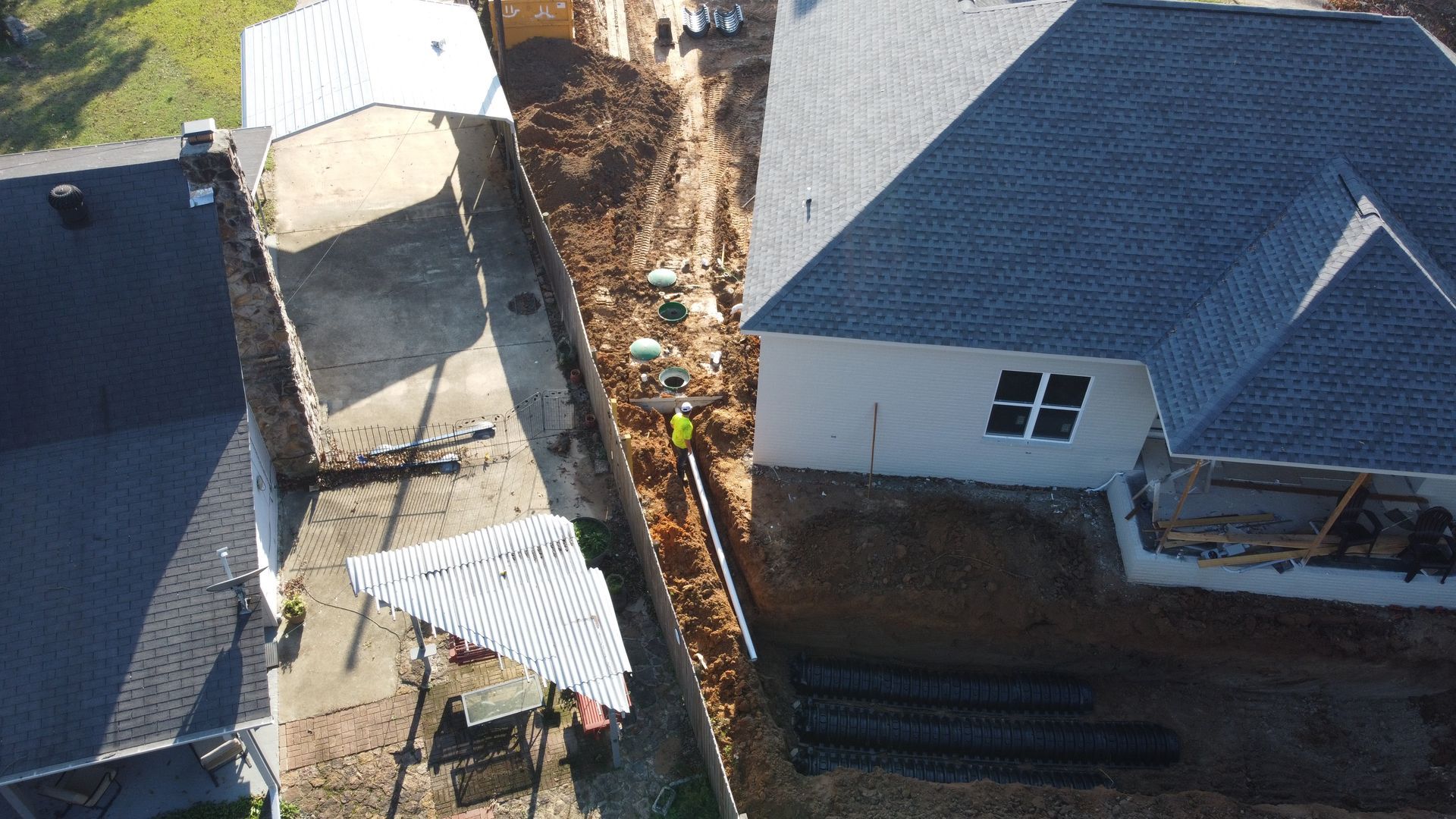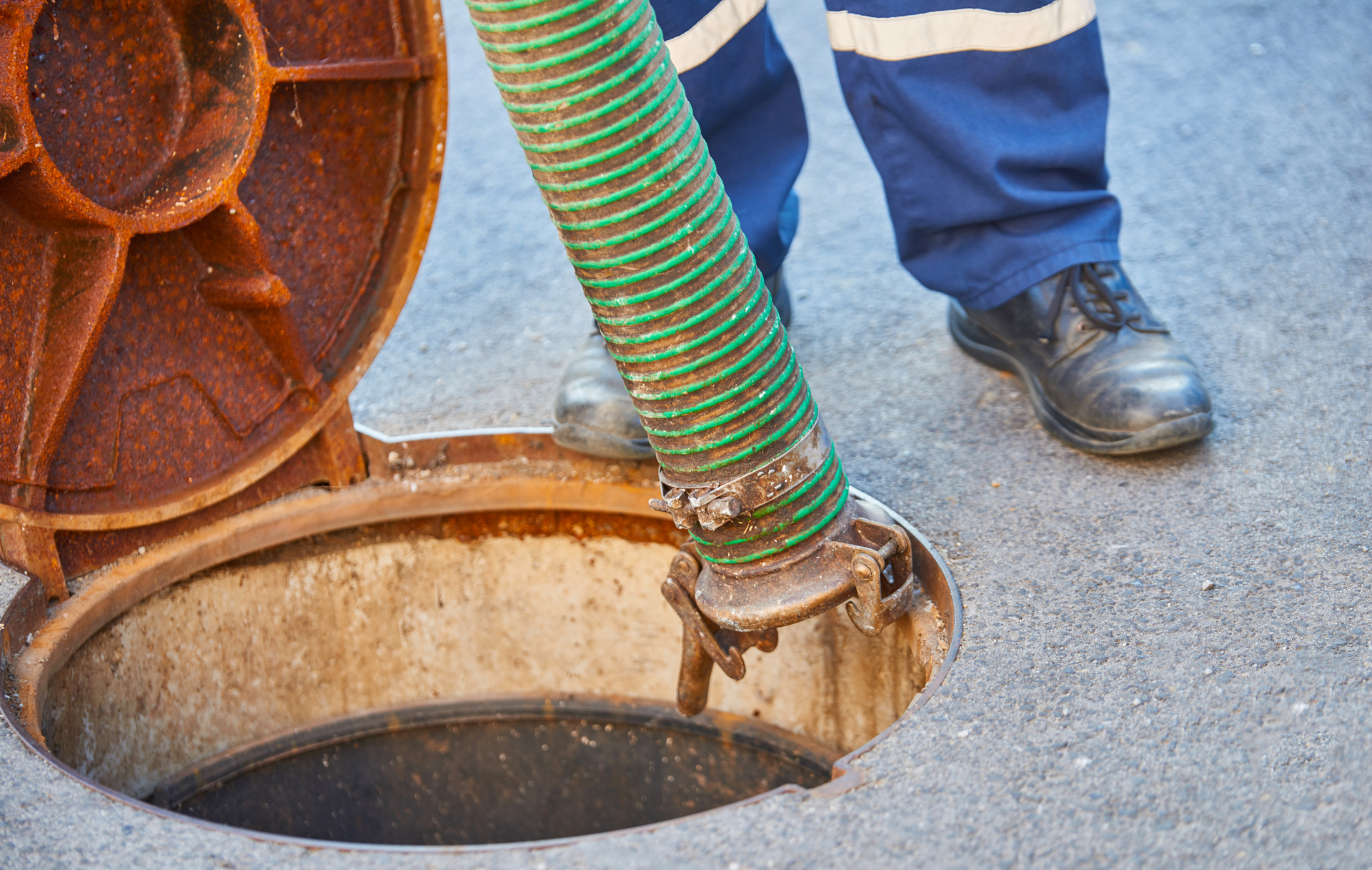Oxford, MS: Unlocking Innovation in Septic Upgrades
November 30, 2023
Demystifying Septic Tank Upgrades: Exploring Innovative Technologies in Oxford, MS
Nestled in the heart of Mississippi, the charming town of Oxford is known for its rich history, vibrant culture, and a strong sense of community. Oxford residents take great pride in their homes, not only for their aesthetics but also for their functionality. One often underestimated aspect of home maintenance is the septic system. Responsible for the treatment and disposal of wastewater, septic systems are the unsung heroes of maintaining a clean and healthy living environment. In this comprehensive blog post, we'll delve into the fascinating world of septic tank upgrades, exploring innovative technologies available through Oxford Septic Service.
The Evolution of Septic Systems
Before we embark on our journey to explore the latest septic tank technologies, it's important to understand how these systems have evolved over time. The traditional septic system, while effective, has seen significant improvements aimed at enhancing efficiency, reducing environmental impact, and simplifying maintenance.
A conventional septic system typically comprises three primary components:
Septic Tank: Wastewater from your home flows into the septic tank, where solids settle at the bottom, and scum floats to the top. The tank's primary function is to separate and partially treat the wastewater.
Drain Field: After leaving the septic tank, liquid effluent is distributed into a drain field, where it percolates through the soil and undergoes further treatment.
Pipes and Distribution Box: A network of pipes and a distribution box evenly distribute effluent in the drain field.
Now, let's explore how innovation has impacted these systems and what homeowners in Oxford can expect in terms of upgrades.
Advancements in Septic Tank Technology
In recent years, septic tank technology has undergone remarkable transformations, resulting in more efficient, eco-friendly, and user-friendly systems. Here are some key innovations:
1. Aerobic Treatment Units (ATUs)
ATUs are advanced septic systems that introduce oxygen into the treatment process. By enhancing microbial activity, they break down wastewater more effectively, resulting in cleaner effluent. ATUs can be a valuable upgrade option for Oxford homeowners looking to enhance the treatment efficiency of their septic systems.
2. High-Efficiency Septic Tanks
Modern septic tanks are designed with efficiency in mind. They often incorporate features such as baffle systems to prevent solids from escaping into the drain field and effluent filters to trap debris. These improvements reduce the risk of drain field clogs and extend the system's lifespan.
3. Dosing Systems
Dosing systems regulate the flow of effluent into the drain field, ensuring a consistent distribution of wastewater. This technology prevents overloading the drain field, which can lead to system failure. Dosing systems are particularly beneficial for homes with variable water usage.
4. Alternative Drain Field Designs
Innovative drain field designs, such as gravel-less systems or proprietary chambers, offer improved treatment and disposal of wastewater. These alternatives can be ideal for properties with limited space or challenging soil conditions, which are common considerations in Oxford.
Septic Tank Monitoring and Maintenance Technologies
In addition to advancements in septic tanks themselves, technology has also revolutionized the way septic systems are monitored and maintained:
1. Smart Monitoring Systems
Smart monitoring systems, equipped with sensors, provide real-time data on the health and performance of your septic system. Oxford homeowners can remotely access this information through smartphone apps or web platforms. These systems offer early warning of potential issues, allowing for timely intervention and preventing costly repairs.
2. Septic Tank Additives
Biological additives, such as enzymes and bacteria, can be introduced into the septic system to enhance its efficiency. These additives help break down solids and promote the growth of beneficial microorganisms. However, it's essential to use these products cautiously, as improper use can disrupt the balance of the system.
3. Effluent Filtration Systems
Effluent filters, placed at the outlet of the septic tank, capture small particles and solids before they enter the drain field. These filters reduce the risk of clogs and extend the life of the drain field, promoting the overall health of the system.
Eco-Friendly Septic System Innovations
Oxford, with its commitment to preserving the environment, is an ideal place for homeowners to explore eco-friendly septic system upgrades. Here are some innovative technologies that align with this vision:
1. Greywater Recycling
Greywater recycling systems capture and treat water from sources such as showers, sinks, and washing machines. This treated greywater can then be reused for non-potable purposes like landscape irrigation. Not only does this reduce water consumption, but it also lessens the load on the septic system, making it an eco-conscious upgrade.
2. Biofilters
Biofilters are environmentally friendly alternatives to traditional drain fields. These systems use natural processes to filter and treat wastewater, reducing the environmental impact of septic systems. By enhancing the biological treatment of wastewater, biofilters can help

Navigating the regulations surrounding septic systems is crucial for homeowners and businesses to ensure compliance, protect public health, and safeguard the environment. In this guide, Oxford Septic Services provides valuable insights into septic system regulations, offering clarity and guidance for property owners. Chapter 1: Regulatory Overview Oxford Septic Services provides an overview of the regulatory landscape governing septic systems, including local, state, and federal regulations. Understanding the regulatory framework is essential for property owners to comply with legal requirements and avoid potential fines or penalties. Chapter 2: Permitting Requirements Property owners may be required to obtain permits for the installation, repair, or modification of septic systems. Oxford Septic Services explains the permitting process, including the application requirements, approval procedures, and associated fees, to help property owners navigate the process successfully. Chapter 3: Inspection and Maintenance Requirements Many jurisdictions have inspection and maintenance requirements for septic systems to ensure proper functioning and prevent environmental contamination. Oxford Septic Services outlines these requirements, including the frequency of inspections, maintenance tasks, and reporting obligations, to help property owners fulfill their regulatory obligations. Chapter 4: Environmental Considerations Septic systems can impact groundwater quality, surface water contamination, and sensitive ecosystems if not properly maintained. Oxford Septic Services discusses the environmental considerations associated with septic systems, emphasizing the importance of responsible waste management practices to protect the environment and public health. Chapter 5: Compliance Assistance Complying with septic system regulations can be complex, but Oxford Septic Services offers assistance to property owners. Whether it's helping with permit applications, conducting inspections, or providing maintenance services, Oxford Septic Services ensures that property owners have the support they need to meet regulatory requirements. Chapter 6: Future Trends and Developments Regulations governing septic systems are subject to change as new technologies emerge and environmental concerns evolve. Oxford Septic Services discusses future trends and developments in septic system regulations, helping property owners stay informed and adapt to regulatory changes proactively. Conclusion: Understanding septic system regulations is essential for property owners to maintain compliance, protect public health, and preserve the environment. With insights from Oxford Septic Services, property owners can navigate regulatory requirements confidently and ensure the proper functioning of their septic systems for years to come.

Septic system failures can be costly, inconvenient, and hazardous to both property and health. Fortunately, with proper maintenance and proactive measures, many septic system failures can be prevented. In this guide, Oxford Septic Services shares valuable tips to help homeowners and businesses avoid septic system failures and ensure the long-term functionality of their systems. Chapter 1: Regular Maintenance Inspections Routine maintenance inspections are essential for identifying potential issues early and preventing costly repairs. Oxford Septic Services recommends scheduling regular inspections to assess the condition of your septic system and address any problems before they escalate. Chapter 2: Timely Septic Tank Pumping Regular septic tank pumping is crucial for removing accumulated solids and preventing clogs and backups. Oxford Septic Services advises homeowners to adhere to a consistent pumping schedule based on factors such as household size and usage to maintain optimal tank capacity. Chapter 3: Proper Waste Disposal Practices Improper disposal of household waste can overload septic systems and lead to system failures. Oxford Septic Services recommends avoiding flushing non-biodegradable items, grease, and chemicals down drains and toilets to prevent clogs and damage to the system. Chapter 4: Protecting the Drain Field The drain field plays a critical role in wastewater treatment and dispersal. To prevent drain field failure, Oxford Septic Services advises property owners to avoid parking vehicles or installing structures over the drain field and to maintain proper landscaping to prevent root intrusion. Chapter 5: Prompt Repairs and Maintenance Addressing minor issues promptly can prevent them from escalating into major septic system failures. Oxford Septic Services recommends contacting a professional at the first sign of trouble, such as slow drains, foul odors, or sewage backups, to prevent further damage. Chapter 6: Environmental Awareness Understanding the environmental impact of septic system failures can motivate property owners to prioritize proper maintenance and care. Oxford Septic Services emphasizes the importance of responsible waste management and eco-friendly practices to protect local water sources and ecosystems. Conclusion: By following these tips from Oxford Septic Services, homeowners and businesses can take proactive steps to prevent septic system failures and maintain the functionality of their systems for years to come. With regular maintenance, proper waste disposal practices, and prompt repairs, property owners can avoid costly and disruptive septic system failures and enjoy peace of mind knowing their systems are in good working order.
